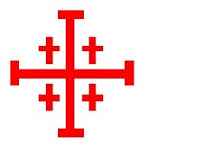We remember today, O God, the slaughter of the holy
innocents of Bethlehem by King Herod. Receive, we pray, into the arms of your
mercy all innocent victims; and by your great might frustrate the designs of
evil tyrants and establish your rule of justice, love, and peace; through Jesus
Christ our Lord, who lives and reigns with you, in the unity of the Holy
Spirit, one God, for ever and ever. Amen.
The Winding
Centuries Have Come and Gone
The winding centuries have come and gone
Still the Christmas song goes on and on.
Some have loved the Babe, some still hate him;
Christmas joy is for hearts that welcome him.
Peace on earth, the thronging angels sing,
Throughout the heavens, hear the merry chorus ring.
Simple shepherds on the hill rejoice to hear
The news that Almighty God has drawn near.
But Herod on his throne feels a deadly chill;
Any who threaten his power he will kill,
Wife, or son, or even little baby child.
There is no safety for child or mother mild.
But Herod is dead; the years
have come and gone,
Only Christ will come with the
breaking of the dawn.
In the picture is the Church of the Nativity in Bethlehem,
the site of the birth of Christ Jesus. All of the beautiful mosaics were
stripped out of the church building by the Muslims and used to decorate the
Dome of the Rock in Jerusalem. The ancient conflict still goes on today with
the murder of the innocents young and old in Israel and in many other places as
Islam spreads its black wings.
Today's Lectionary Readings: Psalm 124, Jeremiah
31:15-17, Matthew 2:13-18, Revelation 21:1-7






